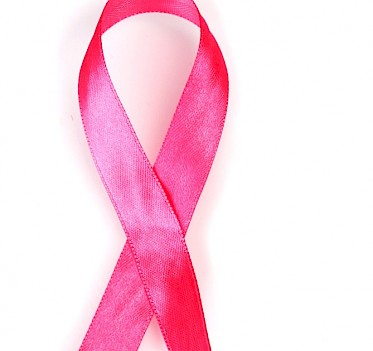Breast Cancer Awareness Month
October is Breast Cancer Awareness Month. Just about all of us know someone who has suffered, or passed, from breast cancer. HealthCARE Express is here to help you understand what breast cancer is, and to hopefully dispel different misconceptions about it.
What is breast cancer?
To understand breast cancer, we must first understand what cancer is. Cancer occurs when the cells that build tissues within the body either generate too quickly or old or damaged cells do not die off. This causes a buildup of cells to form a lump or tumor. Not all tumors are malignant, just those that are made up of malformed cells. These cells can potentially travel to other parts of the body through the bloodstream, or other bodily systems to spread (or metastasize). Knowing this, breast cancer is, of course, cancerous cells that form in the breasts.
What causes breast cancer?
Scientists aren’t quite sure what really causes breast cancer to develop, but they do know of certain risk factors that exist. Drinking alcohol, leading a sedentary lifestyle, having a poor diet, being overweight, or taking synthetic hormone replacement therapies can potentially aid cancer cells to develop. While these risk factors can be avoided, others cannot. You may be more prone to developing breast cancer if it runs in your family.
How common is breast cancer?
One in every eight women often has breast cancer. It is the most common cancer diagnosed in women, and it is the second leading cause of death in women (behind heart disease).
Can men get breast cancer?
Though men are not born with as many breast cells as women, those cells are still part of their body. It is very rare for a man to get breast cancer, but not impossible. Breast cancer in men often develops when cancer from other areas of the body spreads to breast tissue. A few thousand men are diagnosed with breast cancer every year.
How do you check for breast cancer?
There are different methods for self-checking for breast cancer. Here is a useful link to show you how: http://www.breastcancer.org/symptoms/testing/types/self_exam/bse_steps.
Of course, you should regularly go to your doctor and have yearly exams conducted to ensure that breast cancer, or any other type of cancer, is not present in your body.
Some common misconceptions:
Breast cancer is not caused by drinking caffeine, wearing deodorant, or using microwaves or cell phones. It is not contagious, so don’t worry about catching it from someone who has it. Mammograms do not cause breast cancer to spread. Breast implants also do not increase your chances of developing it. Wearing underwire bras or receiving a bruise to your breast also doesn’t increase your chances of breast cancer. Just because someone in your family has had breast cancer, it doesn’t mean you will develop it. While synthetic hormones can stimulate cancerous growth in the breasts, bio-identical hormone treatments do not.
Get involved in your communities to support local breast cancer awareness groups. Support your loved ones and the people in your community that are suffering from this condition. Be sure to check yourself regularly, and go to annual doctor’s visits to be aware of your health.
